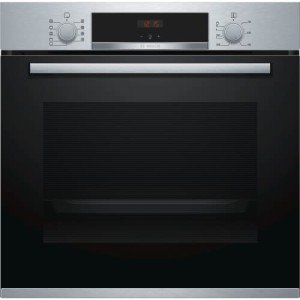Ten Built In Electric Ovens That Really Help You Live Better
페이지 정보
본문
The Comprehensive Guide to Built-in Electric Ovens and Hobs
In today's busy world, modern kitchen appliances have actually progressed drastically to cater to the tastes and requirements of modern house owners. Among these appliances, built-in electric ovens and hobs stand out for their performance, style, and functionality. This post checks out the functions, advantages, setup ideas, and upkeep of built-in electric ovens and hobs, alongside attending to regularly asked questions.
Comprehending Built-in Electric Ovens
What Is a Built-in Electric Oven?
A built-in electric oven is a device designed to be installed into a wall or kitchen cabinets, providing a seamless, integrated oven appearance in the kitchen. Unlike freestanding ovens, built-in designs save area and often come geared up with extra features such as self-cleaning cycles, convection cooking, and various cooking modes.
Kinds Of Built-in Electric Ovens
- Single Ovens: Ideal for smaller sized kitchen areas or those who prepare for less individuals.
- Double Ovens: Offer more cooking area, appropriate for bigger households or those who captivate often.
- Mix Ovens: These consist of both a conventional oven and a microwave, supplying versatile cooking choices.
Advantages of Built-in Electric Ovens
| Benefit | Description |
|---|---|
| Space-Saving Design | Fits perfectly into cabinets, maximizing counter space. |
| Improved Aesthetics | Produces a modern-day, expert kitchen look. |
| Versatile Cooking Options | Often includes numerous cooking modes consisting of bake, broil, and convection. |
| Energy Efficient | Consumes less energy than conventional ovens. |
Comprehending Built-in Hobs
What Is a Built-in Hob?
A built-in hob is a cooking surface area installed into the kitchen counter top, integrating flawlessly with the kitchen style. Offered in electric, induction, and gas varieties, electric hobs are renowned for built in electric ovens their accuracy and ease of use.
Types of Built-in Hobs
- Electric Hobs: Traditional coil elements that heat via electrical resistance.
- Induction Hobs: Use magnetic energy to heat only the cookware, making them faster and much safer.
- Ceramic Hobs: Feature a smooth surface with convected heat underneath, providing simple cleaning.
Advantages of Built-in Hobs
| Benefit | Description |
|---|---|
| Quick Cooking Times | Electric hobs heat rapidly, lowering general cooking time. |
| Easy to Clean | Flat surface area permits fast and uncomplicated cleansing. |
| Resilient | Traditionally built to last and hold up against heats. |
| Versatile Compatibility | Works well with numerous pots and pans products. |
Installation Considerations
Setting up a Built In Electric Ovens-in electric oven and hob requires cautious planning.
Actions for Installation
- Measure the Space: Ensure the measurements of the oven and hob match the allocated space in your kitchen.
- Check Electrical Requirements: Consult an electrical expert to guarantee circuitry can deal with the appliance's power needs.
- Placement of Appliances: Position the oven at a convenient height, usually between waist and eye level.
- Ventilation: Ensure appropriate ventilation, particularly if your oven incorporates a range hood.
Essential Tools
- Power drill
- Screwdrivers
- Level
- Measuring tape
Security Precautions
- Always disconnect the power before setup.
- Follow manufacturer directions carefully.
- Think about hiring a professional for electrical connections.
Maintenance Tips
Maintaining built-in electric ovens and hobs is important for durability and efficiency.
Regular Care Routine
- Cleaning the Surface: Use a soft cloth and manufacturer-recommended cleaner.
- Inspecting Electrical Connections: Check cables and plug for damages occasionally.
- Cleaning Filters: If the oven has a ventilator, tidy or change the filters as required.
Fixing Common Issues
| Concern | Possible Solution |
|---|---|
| Oven Won't Heat | Check the power supply and heating component. |
| Heating Inconsistency | Inspect the thermostat and oven calibration. |
| Hob Not Heating | Make sure cookware works and inspect the power supply. |
Frequently Asked Questions
1. How do I choose the right size built-in electric oven?
Selecting the right size includes determining your kitchen area and thinking about how much cooking you normally do. If you captivate frequently or have a large household, choose a double oven.
2. Are built-in electric hobs safe to utilize?
Yes, built-in electric hobs are safe, particularly induction hobs which only warm the pots and pans, reducing the risk of burns.
3. Can I set up a built-in oven and hob myself?
While it is possible for experienced DIY enthusiasts, employing an expert is suggested, especially for the electrical connections.
4. How frequently should I clean my built in ovens for sale-in oven and hob?
Cleaning up need to be done regularly after usage, with deep cleaning periods depending on cooking frequency - generally every few months.
5. Do built-in appliances need unique upkeep?
built in oven uk-in appliances require similar maintenance to freestanding models, however proper care needs to be taken with their surrounding cabinetry.
Built-in electric ovens and hobs present a combination of technology and design, providing performance and modern-day aesthetic appeals to any kitchen. With correct selection, careful setup, and routine maintenance, these appliances can enhance one's cooking experience for numerous years. Comprehending the functions, advantages, and care requirements can empower property owners to produce the kitchen of their dreams-- efficiently and stylishly.
As kitchen areas continue to develop into main hubs of the home, selecting the best built-in solutions plays an essential function in daily culinary creativity and satisfaction.


